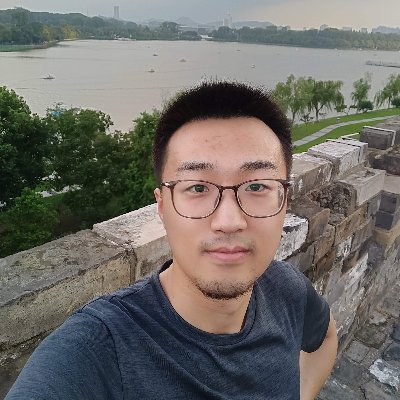🔍 Researches
Review Papers
-
G. Aarts, K. Fukushima, T. Hatsuda, A. Ipp, S. Shi, L. Wang*, and K. Zhou, Physics-Driven Learning for Inverse Problems in Quantum Chromodynamics, Nat Rev Phys 7, 154–163 (2025).
-
K. Zhou, L. Wang*, L.-G. Pang, and S. Shi, Exploring QCD matter in extreme conditions with Machine Learning, Prog. Part. Nucl. Phys. 135, 104084 (2023).
Generative Models in Lattice Calculations
-
Q. Zhu, G. Aarts, W. Wang, K. Zhou, and L. Wang*, Physics-Conditioned Diffusion Models for Lattice Gauge Theory, arXiv:2502.05504 [hep-lat] (2025).
-
G. Aarts, D. E. Habibi, L. Wang, and K. Zhou, On learning higher-order cumulants in diffusion models, Mach. Learn. Sci. Tech. 6, 025004 (2025).
- T. Xu, L. Wang, L. He, K. Zhou, and Y. Jiang, Building imaginary-time thermal filed theory with artificial neural networks, Chin. Phys. C 48, 103101 (2024).
- L. Wang, G. Aarts, and K. Zhou, Diffusion models as stochastic quantization in lattice field theory, JHEP 05, 060 (2024).
- S. Chen, O. Savchuk, S. Zheng, B. Chen, H. Stoecker, L. Wang*, and K. Zhou, Fourier-flow model generating Feynman paths, Phys. Rev. D 107, 056001 (2023).
- L. Wang, Y. Jiang, L. He, and K. Zhou, Continuous-mixture autoregressive networks learning the Kosterlitz-Thouless transition, Chin. Phys. Lett. 39, 120502 (2022).
Inverse Problems
-
L. Wang*, Deep learning for exploring hadron–hadron interactions, J. Subatomic Part. Cosmol. 3, 100024 (2025).
-
L. Wang and J. Zhao, Learning Hadron Emitting Sources with Deep Neural Networks, arXiv:2411.16343 [nucl-th] (2024).
-
S. Soma, L. Wang, S. Shi, H. Stöcker, and K. Zhou, Reconstructing the neutron star equation of state from observational data via automatic differentiation, Phys. Rev. D 107, 083028 (2023).
-
S. Shi, L. Wang, and K. Zhou, Rethinking the ill-posedness of the spectral function reconstruction — Why is it fundamentally hard and how Artificial Neural Networks can help, Comput. Phys. Commun. 282, 108547 (2023).
-
L. Wang, S. Shi, and K. Zhou, Reconstructing spectral functions via automatic differentiation, Phys. Rev. D 106, L051502 (2022).
AI for Science
-
H. Xiao, F. Zhang, R. Zhang, F. Lu, M. Cai, and L. Wang, Retrieval of Total Precipitable Water Under All-Weather Conditions From Himawari-8/AHI Observations Using the Generative Diffusion Model, Geophysical Research Letters 52, e2025GL117075 (2025).
-
S. Zhou, R. Shi, and L. Wang*, Extracting macroscopic quantities in crowd behaviour with deep learning, Phys. Scr. 99, 065213 (2024).
-
M. Xiang, H. Yuan, L. Wang, K. Zhou, and H. G. Roskos, Amplitude/Phase Retrieval for Terahertz Holography with Supervised and Unsupervised Physics-Informed Deep Learning, IEEE Transactions on Terahertz Science and Technology 1 (2024).
-
L. Wang, B. M. Hare, K. Zhou, H. Stöcker, and O. Scholten, Identifying lightning structures via machine learning, Chaos Solitons and Fractals: The Interdisciplinary Journal of Nonlinear Science and Nonequilibrium and Complex Phenomena 170, 113346 (2023).
-
Y.-W. Zhong, Y. Jiang, S. Dong, W.-J. Wu, L.-X. Wang, J. Zhang, and M.-W. Huang, Tumor radiomics signature for artificial neural network-assisted detection of neck metastasis in patient with tongue cancer, Journal of Neuroradiology 49, 213 (2022).
-
L. Wang, T. Xu, T. Stoecker, H. Stoecker, Y. Jiang, and K. Zhou, Machine learning spatio-temporal epidemiological model to evaluate Germany-county-level COVID-19 risk, Mach. Learn.: Sci. Technol. 2, 035031 (2021).
